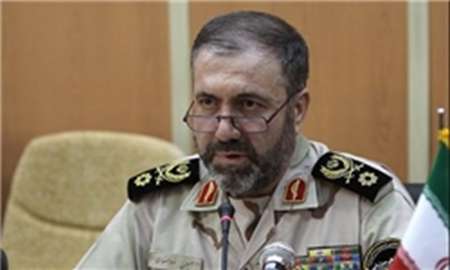November 01-2013
by Warren L. Nelson

Baluchi rebels shot and killed 14 Iranian border guards Friday, stunning the nation and proving the Baluchi insurgency is far from suppressed.
The killings came just two weeks after Kurdish rebels on the other side of the country shot and killed six Pasdaran, ending a long period of quiet in the Kurdish region.

The two bloody incidents suggest the Rohani Administration may have to face a serious challenge from minority group rebels despite Rohani’s pledges to give minority groups better treatment in the Islamic Republic.
Iran responded to the killings with an act of retaliation; only a dozen hours after the shooting, Iran executed 16 Baluchi rebels who had been jailed long before the shooting.
The 14 border guards were killed at a border post opposite the city of Saravan on the border with Pakistan in Sistan va Baluchestan province. Another six guards were wounded in the shooting. Initial reports said a few guards were captured and taken across the border into Pakistan, but the border guard force later denied any hostages were taken.
Most border guards are conscripts.
The announcements about the incident said nothing about any rebels being killed or captured, suggesting the battle was a one-way affair in which the guards were ambushed and dispatched quickly. But officials avoided giving any details about how the gunfight erupted.
Brigadier General Hossain Zolfaqari, the chief of the border guard force, blamed the deaths on Jaish al-Adl (Army of Justice), which he said was formed several years ago. He also claimed that there are 2,500 terrorist groups active in the Middle East with support from Israel.
He did not blame Jundollah, the most active Baluchi rebel group that has carried out terror acts in the region for a decade.
The Jaish al-Adl website claimed responsibility for the border guard deaths. The announcement said the guards were killed in retaliation for an Iranian “massacre” of Sunnis in Syria and for the “cruel treatment” meted out to Sunnis in Iran. The group vowed further vengeance in retaliation for the retaliatory execution of the 16 imprisoned Baluchis by the government of Iran.
The government did not say the 16 executed prisoners were members of Jaish al-Adl. It just said they were “linked to groups hostile to the regime.”
Nobel Laureate Shirin Ebadi issued a statement condemning the Jaish al-Adl attack but also condemning the Islamic Republic for its retaliatory executions, saying such revenge killings of people not associated with the crime only perpetuate violence.
Although General Zolfaqari said Jaish al-Adl was several years old, it appears to have been formed only last year. And Friday’s killings are its third claimed attack since December.
In late December, the group said it ambushed a car near Saravan and killed an “unknown number” of Pasdaran in it. It ordered the Pasdaran to leave the province of Sistan va Baluchestan.
In February, it claimed it planted a roadside bomb near Saravan hat killed “several” Pasdar officers in a car that hit the bomb.
The government did not admit to either of those alleged incidents.
After Friday’s mass killing, the bulk of the state rhetoric was aimed at Pakistan, with officials lining up at the microphones to demand that Pakistan do a better job of guarding its border and stopping the rebels. This is standard rhetoric. Pakistan has also complained about lax Iranian border control when Pakistani guards have been fired on by rebels using Iran as a sanctuary.
Baluchestan sprawls on both sides of the border and both countries have frequent problems with Baluchi rebels who seek independence and bear little but hatred for both Iran and Pakistan.
Last February, the two countries signed the latest in a series of agreements pledging increased cooperation to stop cross border actions by rebels and smugglers who flourish in the boarder zone.
The retaliatory execution of the 16 jailed rebels was nothing new for the Islamic Republic. In December 2010, 11 imprisoned members of Jundollah were hanged in retaliation for a bomb attack by Jundollah on a Shia mosque.
Baluchis make up only about 2 percent of Iran’s population of 75 million.
The Kurdish area of Iran lies 1,100 miles (1,700 kilometers) away on the other side of Iran. On October 10, Iranian media reports said six Pasdaran had been killed in a clash with rebels near Baneh in Kurdistan province. The Kurdish region has been largely quiet since late 2011 when the Pasdaran claimed to have cleaned out all the rebels from the Party of Free life for Kurdistan (PEJAK), which had been operating for years in the Kurdish area.






















